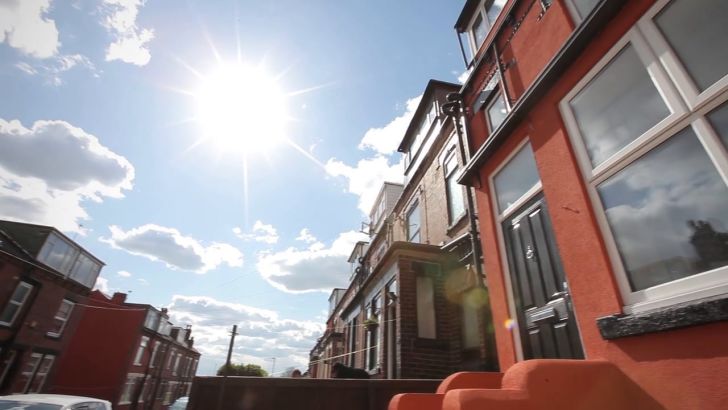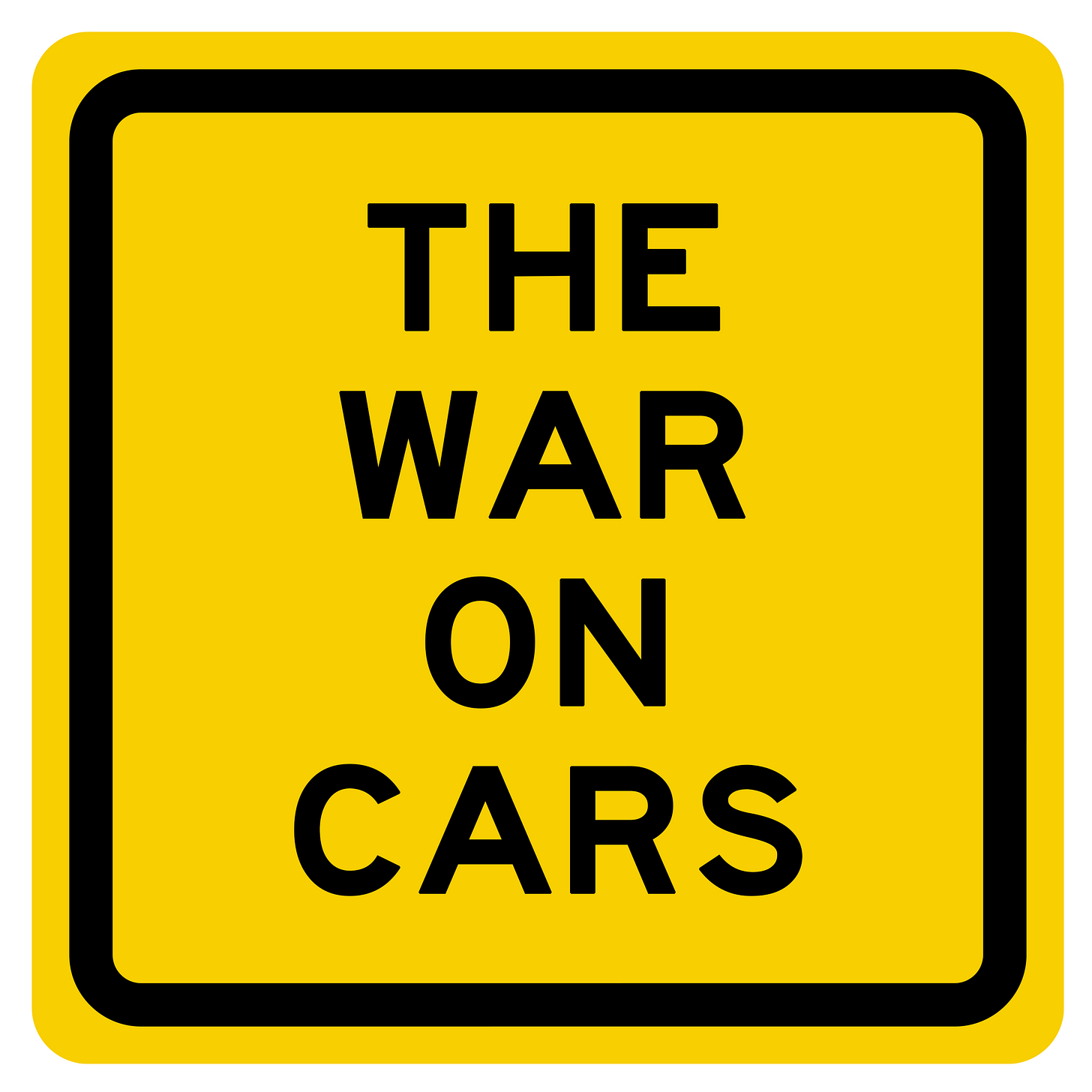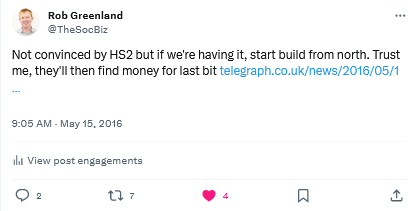Community work is climate work
In this week's Not Doomed Yet newsletter - community projects and climate action, inspiration from a time traveller, the climate impacts of sport, and the war on cars.
Whenever I hear the word community, I immediately think of Lee, a volunteer at The Florrie in Liverpool - an organisation that’s been at the heart of its community in Liverpool 8 for over 130 years.
As his friend and colleague at the Florrie, Timo says in this beautiful short film:
“You’d be fighting to find a better volunteer than [Lee], anywhere in this city, if not the country. He likes to boss me around a lot.
“Tim we need to do this. Tim we need to do that. Community, community!!”
I’m a little bit biased as I’m a Liverpool fan and Sadio Mane was my favourite player, but I think it’s a lovely celebration of both one individual - and the organisation he is part of.
Community, community, climate action
I read a report this week from Power To Change - Community Business And Climate Action.
The report explores the (often secondary) climate impacts of community organisations.
I think they highlight a really important point - organisations that are deeply rooted in their communities have a vital role to play in helping us to tackle the climate emergency - even when (perhaps particularly when) their primary focus isn't environmental.
Good community organisations understand their local area inside out. They have strong relationships with local people. They are trusted.
They are well placed to do stuff that has big climate impacts whilst also, vitally, making things better for local people in their daily lives.
You can see that in the case studies in the report - including one I know very well and have worked closely with in the past, Latch (Leeds Action to Create Homes) Ltd.
As I know from my previous role, helping to set up and run Empty Homes Doctor, bringing an empty home back into use can offer all sorts of wider benefits - including the opportunity for an energy-saving retrofit - cutting carbon emissions, saving tenants money, and providing people with a more comfortable home to live in.
It can also provide a great opportunity to train people in the skills needed for a green transition.
We made a lovely little film about a home Latch (Leeds Action to Create Homes) Ltd worked on a few years ago. Empty Homes Doctor had worked with the owner - and we introduced them to Latch, who bought the home and brought it back into use - after a top quality retrofit - funded in part by Leeds Community Foundation.
💡 Inspiration
I enjoyed this talk from Transition Towns pioneer and time traveller Rob Hopkins, author of one of my go-to books when I’m exploring how we can build a better future, From What Is To What If.
I like Rob’s focus on the importance of spending time imagining a different future.
This feels particularly relevant now, as social media and politicians who struggle to see beyond next week make it increasingly difficult to think long term.
We have to think big, we have to dream. And then build.
🎧 What I’ve been listening to
My favourite podcast - by far - is The War On Cars - a podcast from the US which explores all the negative impacts of the dominance of cars in our cities - including obvious climate impacts - whilst also highlighting lots of good stuff happening around the world to change things for the better.
I can’t quite think why this episode about 15 minute cities and conspiracy theories came to mind again this week.
🥼 Listen to the science, they say…. I’m enjoying the BBC Inside Science podcast - several recent episodes have focused on the climate - including this one about how climate change is forcing communities to leave their homes.
🏆🏆🏆 Easy climate wins - food waste 🥡
After listening to this recent episode of the Food Programme I restored the Too Good To Go app to my phone - to sign up for Magic Bags of food that would otherwise go to waste from local retailers and restaurants. I’ve been impressed with what we’ve had so far from a couple of local bakeries - why not give it a go?
It has been estimated that if food waste was a country, it would be the third highest emitter of greenhouse gases after the US and China. And it’s a great example of a problem where we need BIG, systemic changes - but where there’s still room for us to each do what we can too.
📺 On the box - BBC Green Sports Awards 🏃🏿♀️
This programme focused on the winners of these awards - including Innes Fitzgerald, an inspiring young runner who chose not to compete in a recent competition as it would have involved a flight to Australia.
As a runner, minimising the impacts of a sport I love is something that really interests me - and you can read the notes from a recent meeting I hosted with a group of local running clubs to explore this issue here.
📚 Other writers on Substack
I enjoyed this post from
Particularly this:
Norms are not set in stone, and can change, not the least when enough people start calling for change or start acting for change (this is usually referred to as a social tipping point). Important to remember is that whatever exists within the norm is usually perceived as more neutral than that which exists outside the norm. This is something that becomes apparent if you start breaking norms, which everyone belonging to a minority probably can relate to.
🚄 And finally…. from my archive
So HS2 won’t be heading north any time soon.
But if you fancy a bit of high speed train travel sometime before 2050, maybe give this a read:
Family holidays with more trains & fewer planes — here are a few things I’ve learnt along the way
Ten years ago, as a family we started looking at how we could travel more on holiday by train, rather than by plane — primarily to try to reduce our environmental impact, in the face of our climate crisis. It’s been largely a really positive thing — with a few bumps along the way — and lots of little lessons learnt.









Some great stuff in here Rob. Have downloaded Too Good to Go.
I just wish VCSE orgs had more headroom to focus on their climate impacts. Most seem to be facing even more immediate threats to their existence. No Community on a Dead Planet?